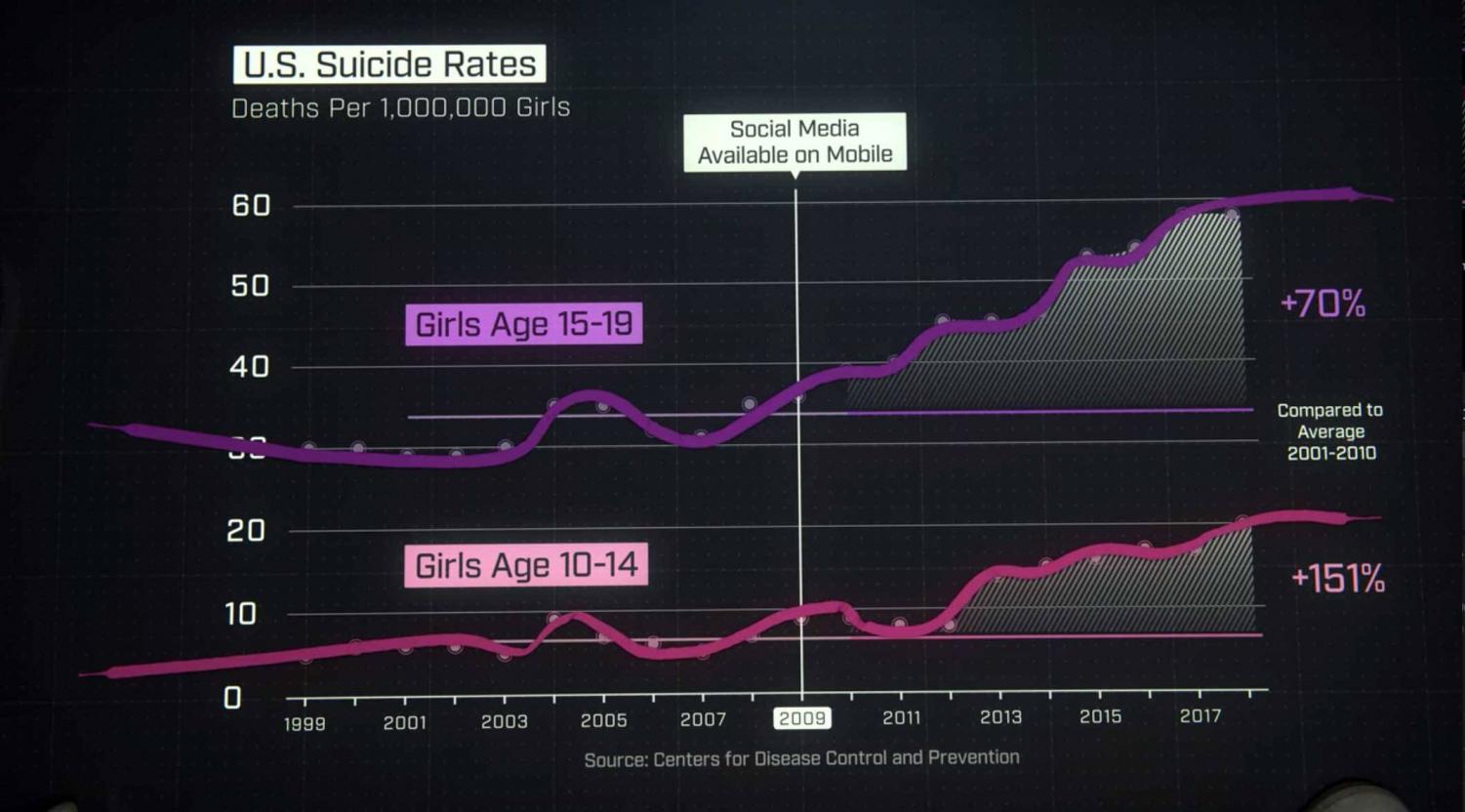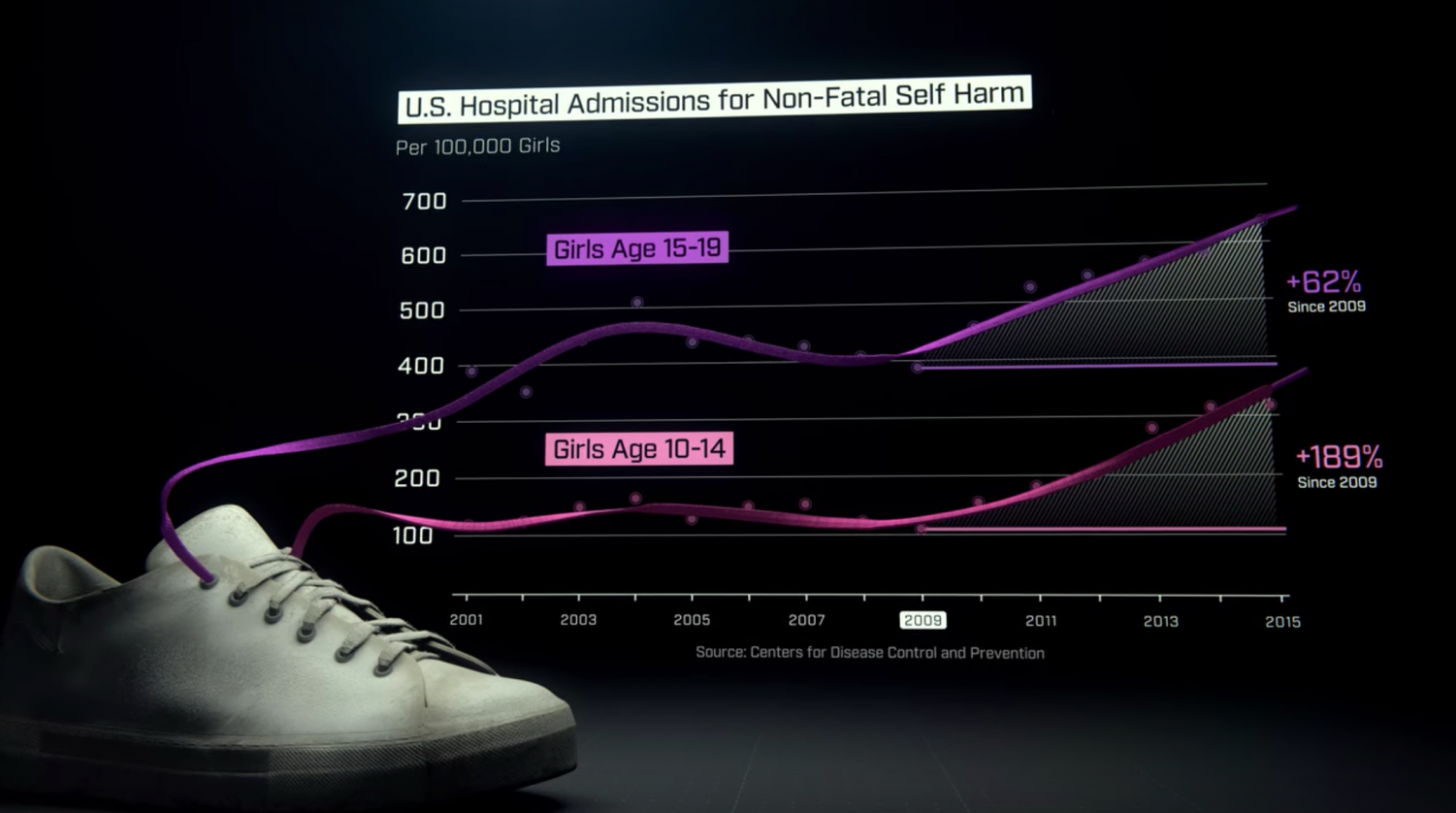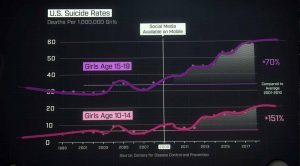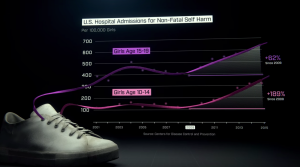- ⚠️ TW: Suicide and Self-Harm
- This is a direct follow-up to my previous article: Movie Review: The Social Dilemma. Click the name of the story to read it if you have not yet.
- The documentary The Social Dilemma on Netflix is the source for everything mentioned in this article.
The Social Dilemma has really brought up some interesting talking points about unintentional problems brought about through the creation and usage of social media. These problems include social media addiction, the selling of data to advertisers, and the mental health of social media users. So, is social media an epidemic? First, the problems need to be addressed.
Social media addiction is a problem that is caused by what is called positive intermittent reinforcement, which is basically the social media company’s way of keeping the user active through the infinite scroll. Companies can accomplish this through machine learning and algorithms. Basically, social media companies track the user’s data and make predictions on what to show the user based on that data. Sandy Parakilas, the former operations manager at Facebook, says, “All of this data that we’re just pouring out all the time is being fed into these systems that have almost no human supervision and that are making better and better and better and better predictions about what we’re gonna do and who we are.”
Social media companies, such as Facebook, Twitter, Instagram, Snapchat, etc., have three goals to help them make money: engagement, growth, and advertising. The engagement goal focuses on keeping the user on the app or site. Positive intermittent reinforcement (the infinite scroll) was created because of this goal. The second goal is growth, which encourages users to recommend the app to their friends. Friend suggestions are an example of this goal. The third goal is advertising, which encourages users to click on or buy products from outside sources. Advertisers pay social media companies for that space on the user’s feed. The user’s feed is then monetized, which is a fancy way of saying profit.
Because most social media apps are free, those companies need a way to raise money to make a profit from their products. By signing up for a social media service, the user is agreeing to give their data to advertising companies. The advertisers then “bid” to appear on a user’s feed (The Social Dilemma shows a really good visual example of this). Thus, social media companies make money.
“It’s a little even trite to say now, but because we don’t pay for the products that we use, advertisers pay for the product that we use. Advertisers are the customers,” Aza Raskin, a former employee at Firefox & Mozilla Labs, claims. Jaron Lanier, the founder of virtual reality, interprets, “It’s the gradual, slight, imperceptible change in your own behavior and perception that is the product.”
Considering that social media companies care about money as the priority, many users’ mental health does suffer. Since the social media cyberspace is filled with beauty filters, today’s teens expect no imperfections. When teenagers look at their favorite celebrity, their role model, excessively Facetuning his or her face to appear as something he or she is not, it makes teenagers want to be the same.
Jonathan Haidt, Ph.D., a social psychologist at the NYU Stern School of Business, states, “There has been a gigantic increase in depression and anxiety for American teenagers which began right around… between 2011 and 2013.” The two graphs below compare suicide and self-harm rates among teenage girls in different years.
Social media wasn’t always meant to be this way. Originally, it was just meant to connect friends together so that they could share photos. Unfortunately, it has evolved into one of the biggest and most toxic industries on Earth. Tim Kendall, the former president at Pinterest and a former director of monetization at Facebook, explains, “It’s easy today to lose sight of the fact that these tools actually have created some wonderful things in the world.”
In my opinion, social media shouldn’t be an epidemic, but because of the problems it has created, it is definitely an epidemic that needs to be recognized by more people.














